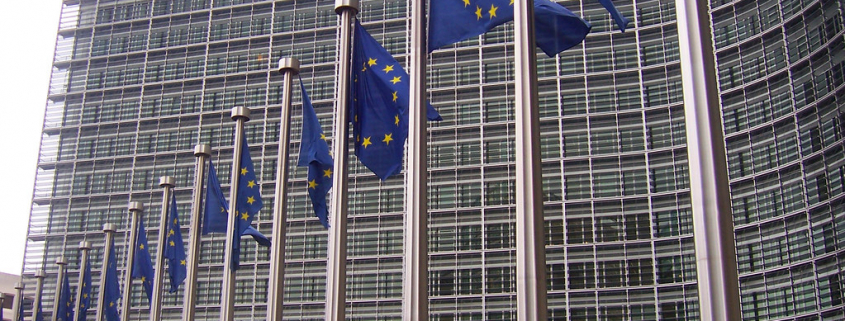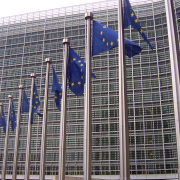COMMISSION IMPLEMENTING REGULATION (EU) 2021/1451
of 3 September 2021
concerning the non-approval of dimethyl sulphide as a basic substance in accordance with Regulation (EC) No 1107/2009 of the European Parliament and of the Council concerning the placing of plant protection products on the market
(Text with EEA relevance)
THE EUROPEAN COMMISSION,
Having regard to the Treaty on the Functioning of the European Union,
Having regard to Regulation (EC) No 1107/2009 of the European Parliament and of the Council of 21 October 2009 concerning the placing of plant protection products on the market and repealing Council Directives 79/117/EEC and 91/414/EEC (1), and in particular Article 13(2) in conjunction with Article 23(5) thereof,
Whereas:
|
(1) |
On 17 January 2019, the Commission received an application from the company Probodelt S. L. for the approval of dimethyl sulphide as a basic substance to be used as a non-lethal attractant for truffle beetle (Leiodes cinnamomeus). Revised applications, received on 24 July 2019 and on 25 November 2019, were accompanied by the information required under the second subparagraph of Article 23(3) of Regulation (EC) No 1107/2009. |
|
(2) |
Two relevant evaluations, carried out in accordance with other Union legislation as referred to in Article 23(2) of Regulation (EC) No 1107/2009 were available, namely, an evaluation from the EFSA FEEDAP Panel (2) and one from the EFSA CEF Panel (3). The outcome of these evaluations have been taken into account by EFSA as well as by the Commission. |
|
(3) |
The Commission asked the European Food Safety Authority (‘the Authority’) for scientific assistance. The Authority provided the Commission with a technical report on dimethyl sulphide on 17 July 2020 (4). The Authority concluded that the available information on dimethyl sulphide has not been properly considered by the applicant. The available published information indicates that dimethyl sulphide is an irritant to skin, eyes and the respiratory tract and a skin sensitiser. The Authority stated that details on acute toxicity, irritation, skin sensitisation and short-term inhalation are publicly available on the European Chemicals Agency (ECHA) website and they should have been integrated in the application to have a complete overview of the basic substance. Toxicological data on two metabolites of dimethyl sulphide are also publicly available on the ECHA website, but have not been properly integrated in the dossier. |
|
(4) |
The Authority also noted that a scientific justification for the absence of long-term toxicity and carcinogenicity concerns, considering the overall toxicity profile of the substance, was not provided. |
|
(5) |
Additionally, the Authority concluded that, although residues in crops are expected to be low due to the type of application (a vapour releasing product in a trap), further data should have been provided to show that there is no concern for consumers via dietary intake. |
|
(6) |
The Commission presented the review report and a draft Regulation to the Standing Committee on Plants, Animals, Food and Feed on 25 March 2021. |
|
(7) |
The Commission invited the applicant to submit its comments on the technical report of the Authority and on the Commission’s draft review report. The applicant submitted its comments, which have been carefully examined. |
|
(8) |
However, despite the arguments put forward by the applicant, the concerns related to the substance cannot be eliminated. |
|
(9) |
Consequently, it has not been established that the conditions laid down in Article 23 of Regulation (EC) No 1107/2009 are satisfied. It is therefore appropriate not to approve dimethyl sulphide as a basic substance. |
|
(10) |
This Regulation does not prevent the submission of a further application for the approval of dimethyl sulphide as a basic substance in accordance with Article 23(3) of Regulation (EC) No 1107/2009. |
|
(11) |
The measures provided for in this Regulation are in accordance with the opinion of the Standing Committee on Plants, Animals, Food and Feed, |
HAS ADOPTED THIS REGULATION:
Article 1
The substance dimethyl sulphide is not approved as a basic substance.
Article 2
This Regulation shall enter into force on the twentieth day following that of its publication in the Official Journal of the European Union.
This Regulation shall be binding in its entirety and directly applicable in all Member States.
Done at Brussels, 3 September 2021.
For the Commission
The President
Ursula VON DER LEYEN
(1) OJ L 309, 24.11.2009, p. 1.
(2) EFSA FEEDAP Panel (EFSA Panel on Additives and Products or Substances used in Animal Feed), 2013. Scientific Opinion on the safety and efficacy of aliphatic and aromatic mono- and di-thiols and mono-, di-, tri-, and polysulphides with or without additional oxygenated functional groups (chemical group 20) when used as flavourings for all animal species. EFSA Journal 2013;11(5):3208, 34 pp. doi:10.2903/j.efsa.2013.3208.
(3) EFSA CEF Panel (EFSA Panel on Food Contact Materials, Enzymes, Flavourings and Processing Aids), 2013. Scientific Opinion on Flavouring Group Evaluation 74, Revision 4 (FGE.74Rev4): Consideration of aliphatic sulphides and thiols evaluated by JECFA (53rd and 61st meeting) structurally related to aliphatic and alicyclic mono-, di-, tri- and polysulphides with or without additional oxygenated functional groups from chemical group 20 evaluated by EFSA in FGE.08Rev5. EFSA Journal 2018;16(3):5167, 58 pp. https://doi.org/10.2903/j.efsa.2018.5167.
(4) EFSA (European Food Safety Authority), 2020. Technical report on the outcome of the consultation with Member States and EFSA on the basic substance application for approval of dimethyl sulfide to be used in plant protection as a non-lethal food attractant for truffle beetle. EFSA supporting publication 2020:EN-1911. 54 pp. doi:10.2903/sp.efsa.2020.EN-1911.
Source: EU Pesticides database
Image source: “Banderas Europeas en el Berlaymont (Bruselas)” by Amio Cajander. is marked with CC BY-SA 2.0.




